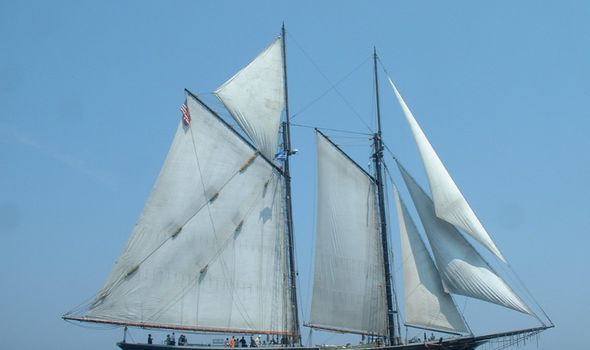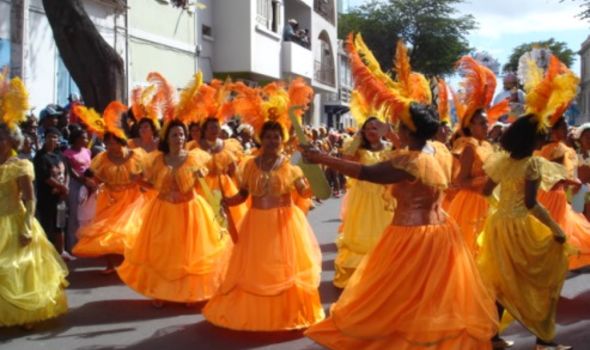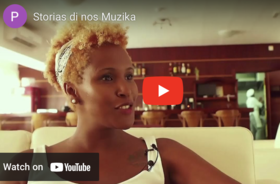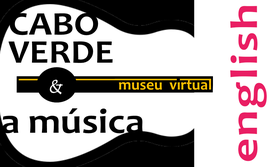The Culture of the Republic of Cabo Verde
Although influenced by African and European culture, Cabo Verde’s history, music, language and literature, storytelling, cuisine, art, dance, craft are uniquely Cape Verdean. The PPICVS “studies, shares, and celebrates the culture, language, and history of Cabo Verde” by sharing its resources, conducting scholarly research, and presenting and promoting the unique contributions of Cape Verdeans to the world.
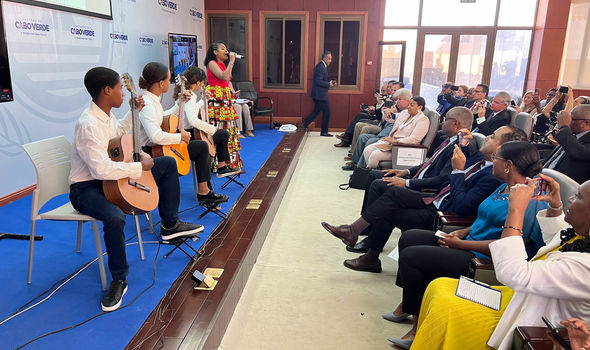
History
The core of Cape Verdean culture can be found in its history, music, and language. In 1460, Portugal colonized and governed Cabo Verde. Given its location in the mid-Atlantic, the islands became a stopover for slavers engaged in the transatlantic slave trade. Struggling with the brutality of slavery, Cape Verdeans turned to the creative arts as the way to best express themselves. The slave trade finally ended on the islands in 1876, but the unique traditions of Cape Verdean singer/songwriters and musicians, its language and literature prevail to this day.
Music
Cape Verdean music tells the story of Cabo Verde from the dark days of the people’s enslaved past to the pride of the Republic’s hard-earned independence.
It is a powerful presence in everyday life for Cape Verdeans. Storylines vary, some focus on politics, some on poverty, the environment, the everyday life of the people. Composed in the Cape Verdean language, songwriting and music play important roles in safeguarding the Cape Verdean language.
Storias di nos Muzika
Produced by the Pedro Pires Institute for Cape Verdean Studies (PPICVS) at BSU, this one- and one-half hour documentary takes viewers on a musical journey. The author, Dr. Joao J. Rosa, reviews the history of Cape Verdean music from the early days to the present day. https://www.youtube.com/watch?v=phMnXdfF_Ho&t=23s
“Cape Verde and Its Music, An Online Museum”
This beautifully produced project “Cape Verde and Its Music, An Online Museum” came together as a result of an academic partnership for studies on Cape Verdean music between scholar Glaucia Nogueira and the Pedro Pires Institute of Cape Verdean Studies at BSU. It is described as “a deep dive into the universe of Cabo Verdean music in all its complexity.” https://eng.caboverdeamusica.online/
Cape Verdean Singer/Songwriters
This comprehensive resource lists artists alphabetically, making it easy for users to research their favorite artist or learn about others. Content is presented in English. The Cape Verdean Language translation is on the way. https://eng.caboverdeamusica.online/personalities/
Language
The Cape Verdean language is the native, though unofficial, language in Cabo Verde. As per the Constitution, “Portuguese is the official language.” However, the Constitution continues to say that the state should “promote the conditions for the officialization of the Cape Verdean mother tongue, on a par with the Portuguese language… All national citizens have the duty to know the official languages and the right to use them.”
To that end, the government is taking steps to add the Cape Verdean language also as an official language. A group of scholars and organizations have created the Cape Verdean Language Association (ALMA) in support of these efforts.
Cape Verdean Language Workshop
In its efforts to accelerate access to the Cape Verdean language, PPICVS presented its second Cape Verdean Language workshop in partnership with the Falmouth Cape Verdean Museum and Cultural Center.
Kabuverdianu, a Language Guide for Learners
Produced by Adelaide Tavares Monteiro, a Cape Verdean scholar, this small booklet “is an introduction to the grammar of the Cape Verdean language for all those who speak it or understand it, but don’t speak it yet.” The booklet was distributed at the first language workshop sponsored by PPICVS. Ms. Monteiro, born in Praia, Cabo Verde, has been intimately involved in the teaching of the Cape Verdean language for more than 27 years. Many more Cape Verdean scholars continue to publish research relating to the Cape Verdean language.
The Importance of the Cape Verdean Language
Language plays a huge role in preserving Cape Verdean’s history, culture, and local identity. To better understand its importance, the linkage between language and music cannot be overlooked. While Portuguese is the official language of the island nation, Cape Verdean songwriters do not think in Portuguese when they write their songs. They think about music “in the language that they breathe” – Cape Verdean.
Promoting Fluency in English
- It is essential for Cape Verdeans interested in international business or travel to become fluent in English to communicate globally. The PPICVS has collaborated with the Dana Mohler Faria English Language Institute at Uni-CV offering opportunities for students to improve their communication skills in English in a two-week program at BSU. The program was put on hold during the Pandemic, but the expectation is that it will be revived soon.
- The PPICVS, in collaboration with English Language Learning school (ELL-CV) founded by BSU alumn Rita Mendes, G’13, in Praia, Cabo Verde, has set up a sister school relationship with the Falmouth Public School system. The relationship is in its early stages.
To learn more about both programs, visit Pedro Pires Institute Cape Verdean Studies - Academic Programs.
